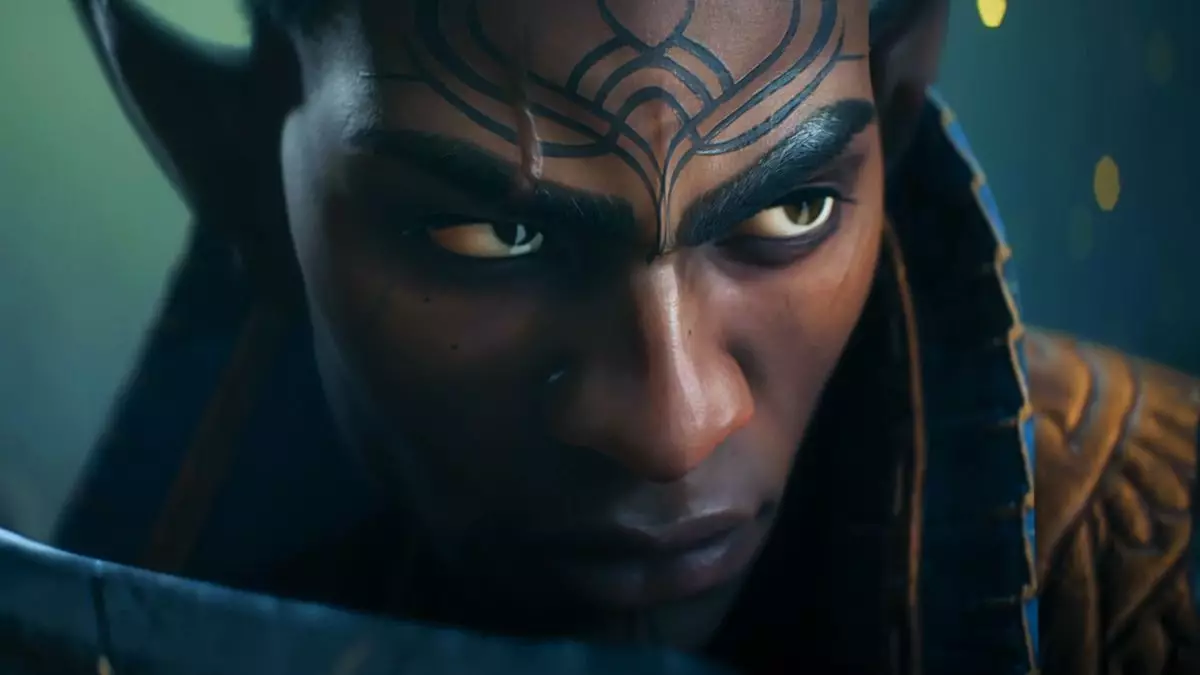The recent launch of BioWare’s Dragon Age: The Veilguard has become a case study in the complexities of modern gaming markets. Despite receiving favorable reviews from critics, the game has not met the sales expectations set forth by its publisher, Electronic Arts (EA). This outcome raises significant questions about the underlying factors contributing to its lackluster performance. As EA’s financial report disclosed a drop in sales by nearly 50%, the narrative swiftly transitioned from celebration of a potentially groundbreaking RPG to the grim reality of layoffs at BioWare. This discrepancy between critical praise and commercial failure illustrates a disconnect that is increasingly prevalent in today’s gaming industry.
During a recent earnings call, EA CEO Andrew Wilson openly critiqued the performance of Dragon Age: The Veilguard. He acknowledged its high-quality launch and the critical acclaim it received, yet lamented that the title “did not resonate with a broad enough audience.” This admission underscores a pivotal challenge for game developers and publishers alike: even stellar game execution cannot guarantee commercial success in a saturated marketplace. Wilson’s mention of the “blockbuster storytelling strategy” further illuminates an industry trend where high production values and engaging narratives are no longer sufficient to capture widespread gamer interest.
The conversation led by EA’s CFO, Stuart Canfield, paints a revealing picture of an evolving industry landscape. He emphasized that the failures of The Veilguard signal a necessary reevaluation of resource allocation within the company. In a context where historical models of success—predicated on beloved intellectual properties—fail to yield expected outcomes, companies must reinvent their approach to bring games to players. This shift highlights an industry increasingly dependent on understanding gamer demographics and market demands rather than relying solely on the legacy of popular franchises.
As a long-standing devotee of the Dragon Age series, it is disheartening to witness the fallout from what many regarded as a return to form for BioWare. Critical reviews praised The Veilguard as one of the best RPGs of 2024, creating a sense of optimism within the community. However, the stark reality that more compelling narratives might not achieve commercial viability is particularly jarring. It raises questions about the future of beloved genres and franchises. Will the very stories that endeared BioWare to its fanbase lead to its undoing because they do not appeal to a wider audience?
The case of Dragon Age: The Veilguard prompts a critical reflection on the nature of success and failure in the gaming industry. In a market defined by competition and changing player preferences, even quality games can falter. With failures such as these leading to real-world consequences like layoffs, it’s essential for developers and publishers to reevaluate their engagement strategies. For fans, the hope remains that next time, the complex relationship between narrative excellence and commercial viability can find a more harmonious balance—one that honors the artistry of game development while also ensuring its sustainability.


Leave a Reply